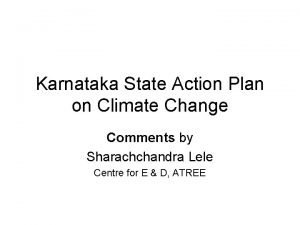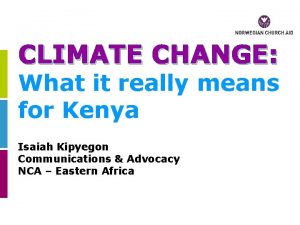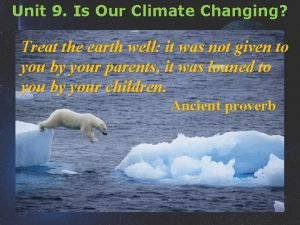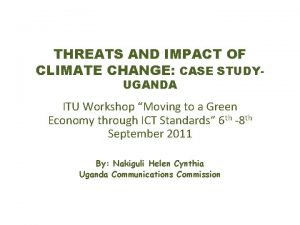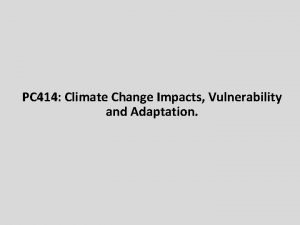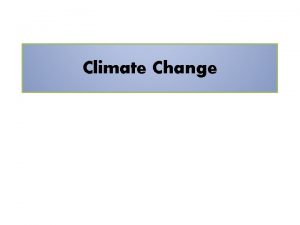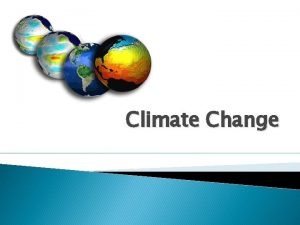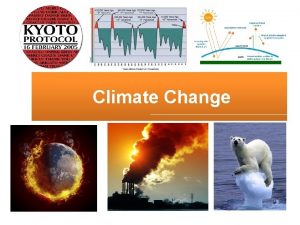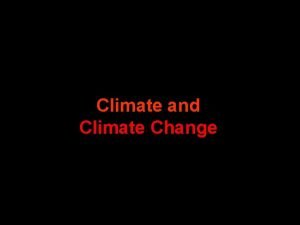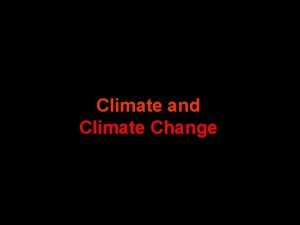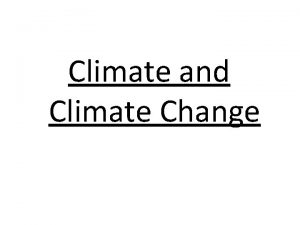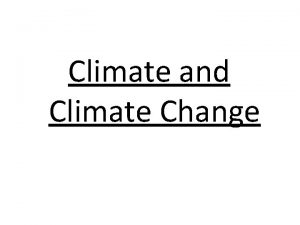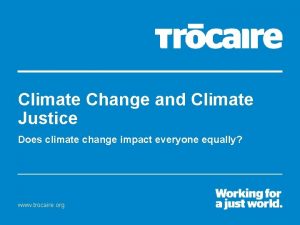VOLCANO PICTURES VOLCANO PICS CLIMATE CHANGE SEMINAR IN
















- Slides: 16

VOLCANO PICTURES

VOLCANO PICS.


CLIMATE CHANGE SEMINAR IN GUADELOUPE MAY 14 – 15 2007 Problem and context Ø The arguments for and against causes and effects of climate change are becoming much clearer to the public than 10 years ago. Ø For most small islands, the reality of climate change is but one of many serious challenges with which they are confronted. Ø The lead authors of the IPCC reports concluded that public education is seriously lacking at policy and societal levels.

MULTI – ISLAND PROJECT FOR OTC’s ISLANDS INVOLVED IN PROJECT Ø ANGUILLA Ø BRITISH VIRGIN ISLANDS Ø CAYMAN ISLANDS Ø MONTSERRAT Ø TURKS & CAICOS ISLANDS

PROJECT FOCUS Ø Raise funds for education programs Ø Mitigation & Adaptation of strategies to reduce the impact of climate change.

PROJECT SMMARY Ø Small Island States Share many common features which serves to enhance their vulnerability to the projected impacts of climate change.

IMPACT Ø Global assessments have consistently identified the Small Island States as one of the most high-risk groups as a result of climate change. It is further established that climate change is inevitable as a result of past greenhouse gas emissions, and that small islands are likely to suffer disproportionately from the enhanced effects of climate change and sea-level rise.

PURPOSE Ø This project was designed as a multi-island project. It’s implementation modalities emphasizes a cooperative approach by the islands involved and the five OTC’s to develop the requisite capacity at the national level to continually assess the impacts of climate change on the coastal resources and by extension on the societies and economies of the countries.

OUTPUTS § Local arrangements to facilitate implementation: § § Establishment of Climate Change Focal Points and National Implementation Coordinating Units (NICUs) in Anguilla, British Virgin Islands, Cayman Islands, Montserrat, Turks & Caicos Islands. These will provide the interface between the regional implementation mechanism and the local implementing agency

OUTPUTS CONT. Ø Public Education and Outreach (PEO). Under the ACCC programme, a regional PEO Strategy has been developed and will be implemented under the MACC project. The territories though their NICUs would access material developed for the purpose to promote a local PEO exercise

OUTPUTS CONT. Ø Training in vulnerability assessments. Under the MACC project, a common methodology for carrying out these assessments is being developed and Territory teams will be trained in the use of the methodology

OUTPUTS CONT. Ø Develop and implement national climate change strategies. Country climate change policies implementation strategies were developed under CPACC and can be facilitated in the Overseas Territories using regional expertise that was developed in the process. Under MACC, a regional strategy will be developed through a process of wide consultation with all countries. Overseas Territories should participate in this consultation

OUTPUTS CONT. Ø Develop capability for addressing climate change issues through human resources development and other institutional strengthening. This can be accomplished through participation in regional workshops aimed at capacity building in areas such as, for example, economic valuation, incorporating climate hazards in EIAs, adapting risk management approaches to dealing with climate, participating in the MSc programme

OUTPUTS CONT. Ø Establish linkages with, and participation in, planning for Adaptation to Climate Change projects to determine lessons learnt from pilot projects and to facilitate application of findings within the national context.

CONCLUSION § The more we can raise the profile around the world the more we can get the public to become more aware of the impacts of climate change. We must include climate change impacts in planning areas such as Housing, Water, Agriculture, Fisheries, Health and Economic Development.
 Climate change 2014 mitigation of climate change
Climate change 2014 mitigation of climate change A dome mountain forms when _____.
A dome mountain forms when _____. Ocean shelf
Ocean shelf How are volcanoes made
How are volcanoes made Persuasive essay about global warming
Persuasive essay about global warming Karnataka state action plan on climate change
Karnataka state action plan on climate change Climate change brainpop
Climate change brainpop Climate change meaning and definition
Climate change meaning and definition Chapter 13 atmosphere and climate change section 1
Chapter 13 atmosphere and climate change section 1 Unit 9 climate change
Unit 9 climate change Conclusion of climate change
Conclusion of climate change Conclusion of climate change
Conclusion of climate change Conclusion of climate change
Conclusion of climate change Mathematics of climate change
Mathematics of climate change Environmentalism definition ap world history
Environmentalism definition ap world history Climate change mitigation
Climate change mitigation Pc 414
Pc 414





